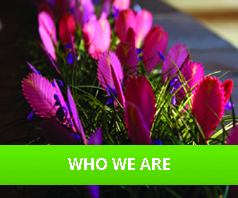If you look at the dictionary definition of ‘waste’ it is ‘unwanted or unusable materials or substances’, or ‘to use or expend carelessly’. I guess it is the latter definition that the TaxPayers’ Alliance is referring to.
Emotive headlines
In true emotive headlines, the Daily Mail suggests that ministers ‘waste’ £1 in every £6 and continue with a raft of statistics to show how every individual and the country could be better off if this weren’t the case.
The report of course takes most things out of context so that it is hard to justify half a million pounds lost in spare parts by the Ministry of Defence and an NHS trust spending more than £2,000 on art work. The suggestion that much tax payers’ money could be saved if the whole department of Culture, Media and Sport were lost, sorry incorporated into other departments and reminders to the NHS to be mindful that the Welfare State needs reining in. But is this waste in the true sense?
How can indoor plants be classified as a ‘waste’?
But you’ll know where I’m going with this. One of the ways tax payers’ money has been wasted is on plants! Yes the Welsh Assembly has ‘squandered’ £33,000 on potted plants.
It does make me feel that we are beating our heads against a brick wall. Haven’t they heard about the properties of indoor plants? I guess if they did, they wouldn’t class the moneys spent as a waste. Again we don’t know how the plants have been used, where they’ve been placed or how many people at the Welsh Assembly benefit directly from their presence.
What we do know
Plants are more than a way of making offices or workspaces look pretty. eFIG members all know that plants have great credentials. If they sent you their CV, you’d snap them up immediately. But let’s just highlight a couple of the benefits which could offset the cost and make the outlay seem worthwhile rather than a waste.
Productivity: DR Craig Knight found that plants in your workplace can increase productivity by 38%.
He also found that creativity can be improved by 45% and general wellbeing improves by 47%
Stress can also be reduced with plants. Virginia Lohr famously conducted a study that found plants reduced stress which enabled increased productivity. This was followed by research by Margaret Burchett who found that a plant at work reduced stress and other negative moods – anxiety, depression, anger and fatigue – between 40 – 60%.
Taking the savings that can be made by increased productivity and wellbeing and fewer days lost to stress and other related conditions, some might feel the indoor plant investment was more than worthwhile.
Coll Smith
First published in February 2014










